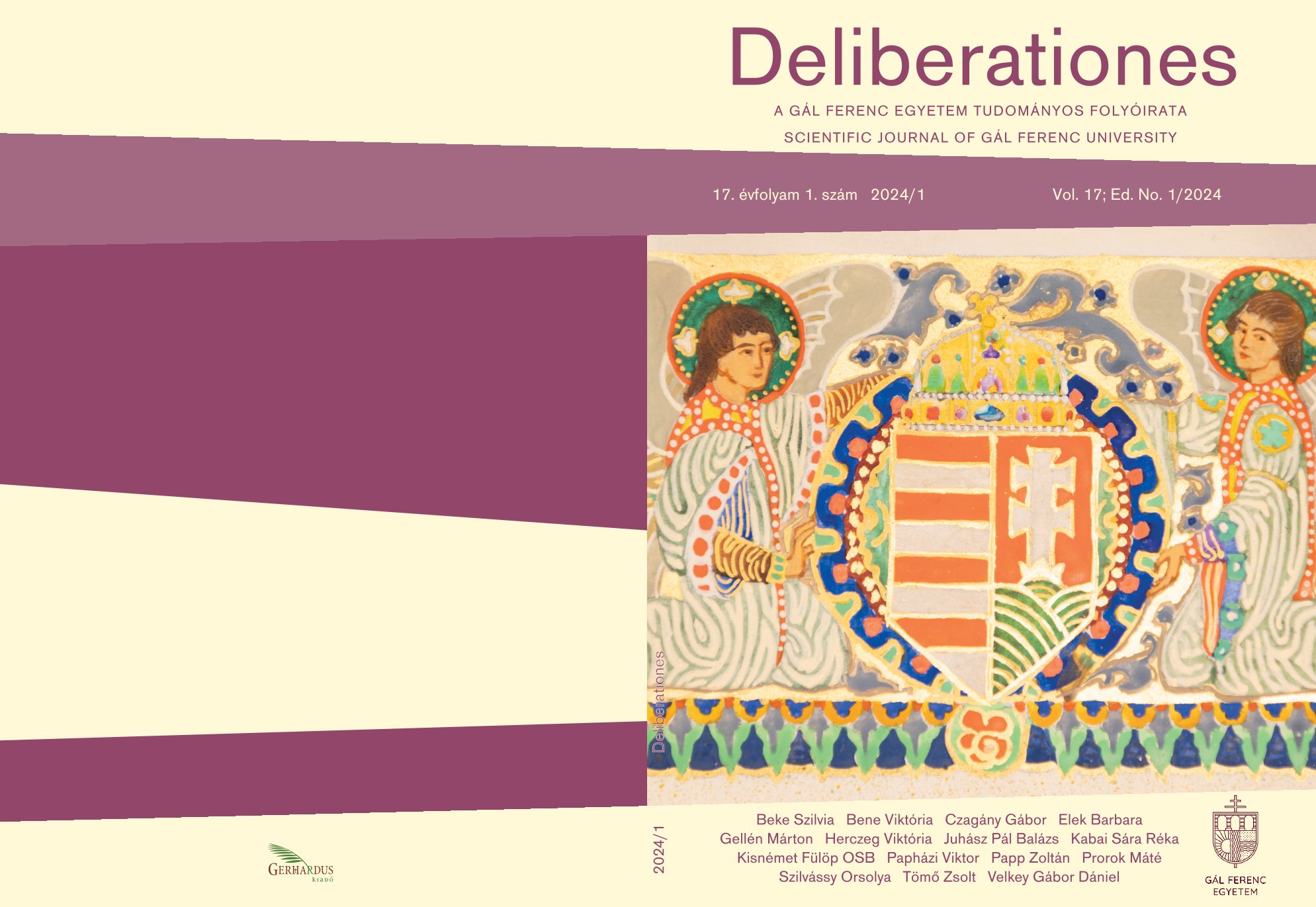Abstract
Hazardous substances plants are increasingly exposed to the potential effects of natural and civilisational disasters. Industrial accidents result in numerous problems
for operators and the surrounding population. Accident prevention and population preparation has been getting a lot of attention nowadays, both scientifically and socially.
The tragedy in Seveso, Lombardy, resulted in long-term health problems for the plant’s workers and the surrounding population. This disaster has exponentially
highlighted the potential dangers of chemical plants and their long-term effects, and has accelerated the development of appropriate industrial protection regulations.
Following the disaster, several studies have been carried out, of which the Seveso Women’s Health Study has focused exclusively on women. The research team clearly
concluded that the health of the women and their descendants affected by the disaster was negatively affected by the airborne chemicals.
Our hypothesis is that with proper preparation and adequate protection measures,
chemical accidents occurring on the premises of plants dealing with hazardous substances can be reduced, and public preparation for industrial accidents can increase
protection against adverse effects. In addition to properly preparing the public, a key step in preventing and effectively dealing with industrial accidents is the development of monitoring and public alarm systems, which will increase the chances of timely detection, intervention, alert and public information, thereby minimizing the risks of chemical accidents.
References
Abate, L., Basso, P., Belloni, A., Bisanti, L., Borgna, C., Bruzzi, P., Dorigotti, G., Falliva, L., Fanuzzi, A., Formigaro, M., Maggiore, G., Marni, E., Meazza, L., Merlo, F., Puntoni, R., Rosa, A., Stagnaro, E., Vercelli, M., & Santi, L. (1982). MORTALITY AND BIRTH DEFECTS FROM 1976 TO 1979 IN THE POPULATION LIVING IN THE TCDD POLLUTED AREA OF SEVESO. in Elsevier eBooks (pp. 571-587). https://doi.org/10.1016/b978-0-08-026256-7.50055-6
Ames, J., Warner, M., Brambilla, P., Mocarelli, P., Satariano, W. A., & Eskenazi, B. (2018). Neurocognitive and physical functioning in the Seveso Women's Health Study. Environmental Research (New York, N.Y. Print), 162, 55-62. https://doi.org/10.1016/j.envres.2017.12.005
Ames, J., Warner, M., Siracusa, C., Signorini, S., Brambilla, P., Mocarelli, P., & Eskenazi, B. (2019). Prenatal dioxin exposure and neuropsychological functioning in the Seveso Second Generation Health Study. International Journal of Hygiene and Environmental Health (Print), 222(3), 425-433. https://doi.org/10.1016/j.ijheh.2018.12.009
Bertazzi, P. A., Bernucci, I., Brambilla, G., Consonni, D., & Pesatori, A. C. (1998). The Seveso Studies on Early and Long-Term Effects of Dioxin Exposure: A Review. Environmental Health Perspectives, 106, 625. https://doi.org/10.2307/3433813
Bertazzi, P. A., Consonni, D., Bachetti, S., Rubagotti, M., Baccarelli, A., Zocchetti, C., & Pesatori, A. C. (2001). Health effects of dioxin exposure: a 20-year mortality study. American Journal of Epidemiology, 153(11), 1031-1044. https://doi.org/10.1093/aje/153.11.1031
Consonni, D., Pesatori, A. C., Zocchetti, C., Sindaco, R., D'Oro, L. C., Rubagotti, M., & Bertazzi, P. A. (2008) Mortality in a Population Exposed to Dioxin after the Seveso, Italy, Accident in 1976: 25 Years of Follow-Up. American Journal of Epidemiology, 167(7), 847-858. https://doi.org/10.1093/aje/kwm371
Emond, C., DeVito, M. J., Warner, M., Eskenazi, B., Mocarelli, P., & Birnbaum, L. S. (2016). An assessment of dioxin exposure across gestation and lactation using a PBPK model and new data from Seveso. Environment International, 92-93, 23-32. https://doi.org/10.1016/j.envint.2016.03.015
Eskenazi, B., Mocarelli, P., Warner, M., Samuels, S. J., Needham, L. L., Patterson, D. G., Brambilla, P., Gerthoux, P. M., Turner, W. E., Casalini, S., Cazzaniga, M., & Chee, W. Y. (2001). Seveso Women's Health Study: does zone of residence predict individual TCDD exposure? Chemosphere, 43(4-7), 937-942. https://doi.org/10.1016/s0045-6535(00)00454-9
Eskenazi, B., Warner, M., Brambilla, P., Signorini, S., Ames, J., & Mocarelli, P. (2018). The Seveso accident: a look at 40 years of health research and beyond. Environment International, 121, 71-84. https://doi.org/10.1016/j.envint.2018.08.051
Eskenazi, B., Mocarelli, P., Warner, M., Samuels, S. J., Vercellini, P., Olive, D. L., Needham, L. L., Patterson, D. G., & Brambilla, P. (2000). seveso Women's Health Study: a study of the effects of 2,3,7,8-tetrachlorodibenzo- p -dioxin on reproductive health. chemosphere, 40(9-11), 1247-1253. https://doi.org/10.1016/s0045-6535(99)00376-8
Kerger, B., Gerthoux, P., & Mocarelli, P. (2019). 1976 Trichlorophenol reactor explosion at Seveso, Italy. In Elsevier eBooks (pp. 113-124). https://doi.org/10.1016/b978-0-12-409548-9.11717-8
Landi, M. T., Consonni, D., Patterson, D. G., Needham, L. L., Lucier, G. W., Brambilla, P., Cazzaniga, M. A., Mocarelli, P., Pesatori, A. C., Bertazzi, P. A., & Caporaso, N. E. (1998). 2,3,7,8-Tetrachlorodibenzo-p-dioxin plasma levels in Seveso 20 years after the accident. Environmental Health Perspectives, 106(5), 273-277. https://doi.org/10.1289/ehp.98106273
Nerín, C., Seco, B., De Val Tena, Á. L., & Calvo, M. (2014). Seveso Disaster and the European Seveso Directives. In Elsevier eBooks (pp. 244-247). https://doi.org/10.1016/b978-0-12-386454-3.00461-9
Slama, N., Warner, M., Mocarelli, P., Brambilla, P., & Eskenazi, B. (2019). The 2nd to 4th digit length ratio (2D:4D) among children of Seveso women exposed to 2,3,7,8-tetrachlorodibenzo-p-dioxin. Early Human Development (Print), 131, 45-50. https://doi.org/10.1016/j.earlhumdev.2019.02.009
Tahmid, M., Dey, S., & Syeda, S. R. (2020). mapping human vulnerability and risk due to chemical accidents. journal of Loss Prevention in the Process Industries, 68, 104289. https://doi.org/10.1016/j.jlp.2020.104289
Warner, M., Rauch, S., Brambilla, P., Signorini, S., Mocarelli, P., & Eskenazi, B. (2020). Prenatal dioxin exposure and glucose metabolism in the Seveso Second Generation study. Environment International, 134, 105286. https://doi.org/10.1016/j.envint.2019.105286
Wesselink, A. K., Warner, M., Samuels, S. J., Parigi, A., Brambilla, P., Mocarelli, P., & Eskenazi, B. (2014). Maternal dioxin exposure and pregnancy outcomes over 30 years of follow-up in Seveso. Environment International, 63, 143-148. https://doi.org/10.1016/j.envint.2013.11.005
